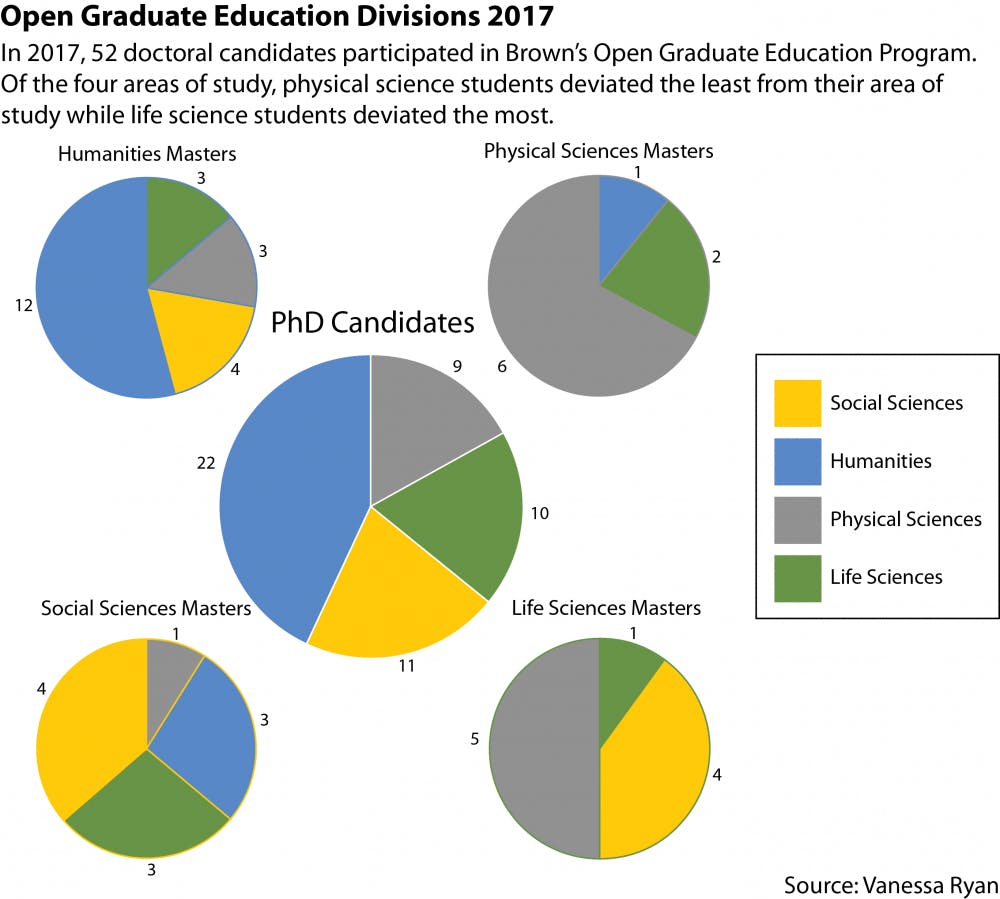Doctoral students can continue to receive master’s degrees in the humanities through the “Open Graduate Education Program” following a $1.675 million, five-year grant from the Andrew W. Mellon Foundation, announced Sept. 17 in a University press release.
The Open Graduate Education Program, initiated in 2011 with a $2 million grant from the same foundation, allows doctoral students to pursue a master’s degree in any discipline to complement their studies. The goal of the program is to expand the academic and professional possibilities for doctoral students, similar to how the open curriculum allows undergraduate students to pursue multiple lines of study, said Associate Dean of Student Development Vanessa Ryan.
A total of 72 students are enrolled in the program and a cohort of nine new students has started their master’s degrees this academic year, Ryan said. Applicants are selected based on how well their proposed graduate degree will complement their ongoing scholarship.
“We’ve shown that this program is successful,” Ryan said. Students participating in the program complete coursework for their master’s degree as well as their PhD in the same amount of time “it takes for an average PhD” or even less, Ryan said. “That’s stunning.”
The grant is “a reaffirmation of the program, and that’s really important as we move it forward,” she added.
Though the Mellon grant specifically offers funds for students in the humanities and social sciences, program participants studying the physical sciences are supported by the Graduate School as well, wrote Dean of the Graduate School Andrew Campbell in an email to The Herald. This allows students from all disciplines to apply and participate, he added.
“The expectations of students in the Open Graduate Education program are high, and we want to maximize student success,” Campbell wrote.
Whereas doctoral students typically spend several years working as teaching assistants, the Open Graduate Education Program allows participants to substitute teaching work for classes fulfilling their master’s degrees. “The program provides them with additional stipends that allow them to be relieved of other obligations that might take away from their training,” Campbell wrote.
Students in the program have the opportunity to choose their own combination of degrees, Ryan said. “We are looking for students where the master’s (degree) will add something new to their PhD studies.”
Martin Uildriks GS is pursuing a dissertation in the archaeology department and completing fieldwork in Sudan. However, he’s also been spending time in the Center for Information Technology, working on a master’s degree in computer science.
“I like to think of my combination (of degrees) as putting computer science in archaeology but also (as) putting humanities into computer science,” Uildriks said. “What I’m trying to do is use computer science to create my own tools with archaeological questions in mind.” For example, Uildriks’ final project for a class in web applications and design involved designing a museum-oriented archaeological database, he said.
Doria Charlson GS completed her master’s degree in history in 2017 while working on her dissertation analyzing migrant labor through dance studies in the Theatre and Performance Studies department. The addition of a history degree heightened the academic credibility of her work, she said.
“My dissertation is a historically grounded dissertation,” Charlson said. “I needed to know what a traditional historian would do. … I’m interested in what is being excluded or occluded by previous research methods.”
As a result of the renewed funding and the success of students like Charlson and Uildriks, the Open Graduate Education Program will continue to expand to allow more PhD students access to master’s degrees in different departments, Ryan said.
With the additional funding, Ryan said she hopes to offer professional development training to build a supportive community as students adjust to new departments and disciplines.
“The Open Graduate Education program is a signature program for the Graduate School and is leading the way in showing that interdisciplinary training is possible in graduate education,” Campbell wrote. “We anticipate that it will pave the way for other complementary ways for students to pursue studies in other areas.”





